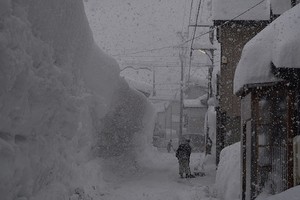November 15, 2022 at 13:15 JST
It is abnormal that it took three long years for the leaders of two neighboring democracies to finally hold a face-to-face meeting.
Leaders of Japan and South Korea need to build on their first official talks to make up for lost time by scheduling regular exchanges so they can work closely together in tackling regional challenges like the security threat posed by North Korea.
Prime Minister Fumio Kishida and South Korean President Yoon Suk-yeol Kishida and Yoon, both relative newcomers to the top leadership positions, held their inaugural face-to-face talks on the sidelines of the Association of Southeast Asian Nations (ASEAN) conference taking place in Phenom Penh.
Kishida and Yoon reaffirmed their commitment to accelerating a diplomatic solution to the touchy bilateral issue of compensation for former Korean wartime laborers, known as “choyoko” (drafted workers) in Japan. It remains the biggest obstacle to improved ties between the two nations and we welcome their agreement.
What is troubling is the weakened domestic power bases of both men. Kishida and Yoon are struggling with low approval ratings. Kishida’s already shaky leadership has been damaged further by the resignations of Cabinet members due to scandals, while tepid public support for Yoon eroded further after the recent deadly Halloween crowd crush in Seoul.
If their commitment to fixing the frazzled ties between their countries is weakened by concerns about being criticized at home for taking a soft stance toward the other, the diplomatic momentum for a solution to the wartime labor issue could fizzle out quickly. Kishida and Yoon are responsible for convincing their domestic audiences of the importance of the relationship between the two nations.
Their summit talks were prompted by a flurry of provocative actions by North Korea closely tied to its nuclear and missile programs.
Since September, North Korea has lobbed ballistic missiles on an almost daily basis. One flew over Japan and traveled further than any North Korean missile in the past.
The growing security threat from Pyongyang has forced the Japanese government to change its policy of not holding a summit with South Korea until the choyoko issue is settled. Given heightened tensions in the Korean Peninsula, the policy shift came far too late.
North Korea was also a key topic at a trilateral summit involving U.S. President Joe Biden as well as the Japanese and South Korean leaders.
In their joint statement, the trio said they intend to “share DPRK (North Korea) missile warning data in real time to improve each country’s ability to detect and assess the threat posed by incoming missiles.” In a warning to Pyongyang, the statement also said the three leaders “reaffirm that a DPRK nuclear test would be met with a strong and resolute response from the international community.”
It is obviously vital to respond effectively to the urgent and ongoing crisis. But there are limits to the effectiveness of the “pressure-only” approach to dealing with Pyongyang. The U.N. Security Council has failed to take concerted action in response to Russia’s aggression against Ukraine, such as agreeing to strengthen international sanctions against Moscow.
The fundamental strategy for dealing with North Korea should be focused on efforts to push Pyongyang toward abandoning its brinkmanship diplomacy using nuclear and missile threats.
One effective incentive for North Korea to change its behavior would be direct dialogue with the United States. The Biden administration has adopted a “realistic approach” aimed at gradual denuclearization of North Korea. But Washington, preoccupied with responding to threats from China and Russia, has not demonstrated its will to get actively involved with North Korea any time soon.
Japan, the United States and South Korea should adopt a more flexible strategy in responding to North Korea’s threats that combine a hard and a soft approach instead of adhering to the policy of strengthening deterrence.
The bilateral and trilateral summits should serve as a starting point for enhancing the weakened ties between Japan and South Korea and solidifying cooperation among the three nations.
--The Asahi Shimbun, Nov. 15




















A peek through the music industry’s curtain at the producers who harnessed social media to help their idols go global.
A series based on diplomatic documents declassified by Japan’s Foreign Ministry
Here is a collection of first-hand accounts by “hibakusha” atomic bomb survivors.
Cooking experts, chefs and others involved in the field of food introduce their special recipes intertwined with their paths in life.
A series about Japanese-Americans and their memories of World War II